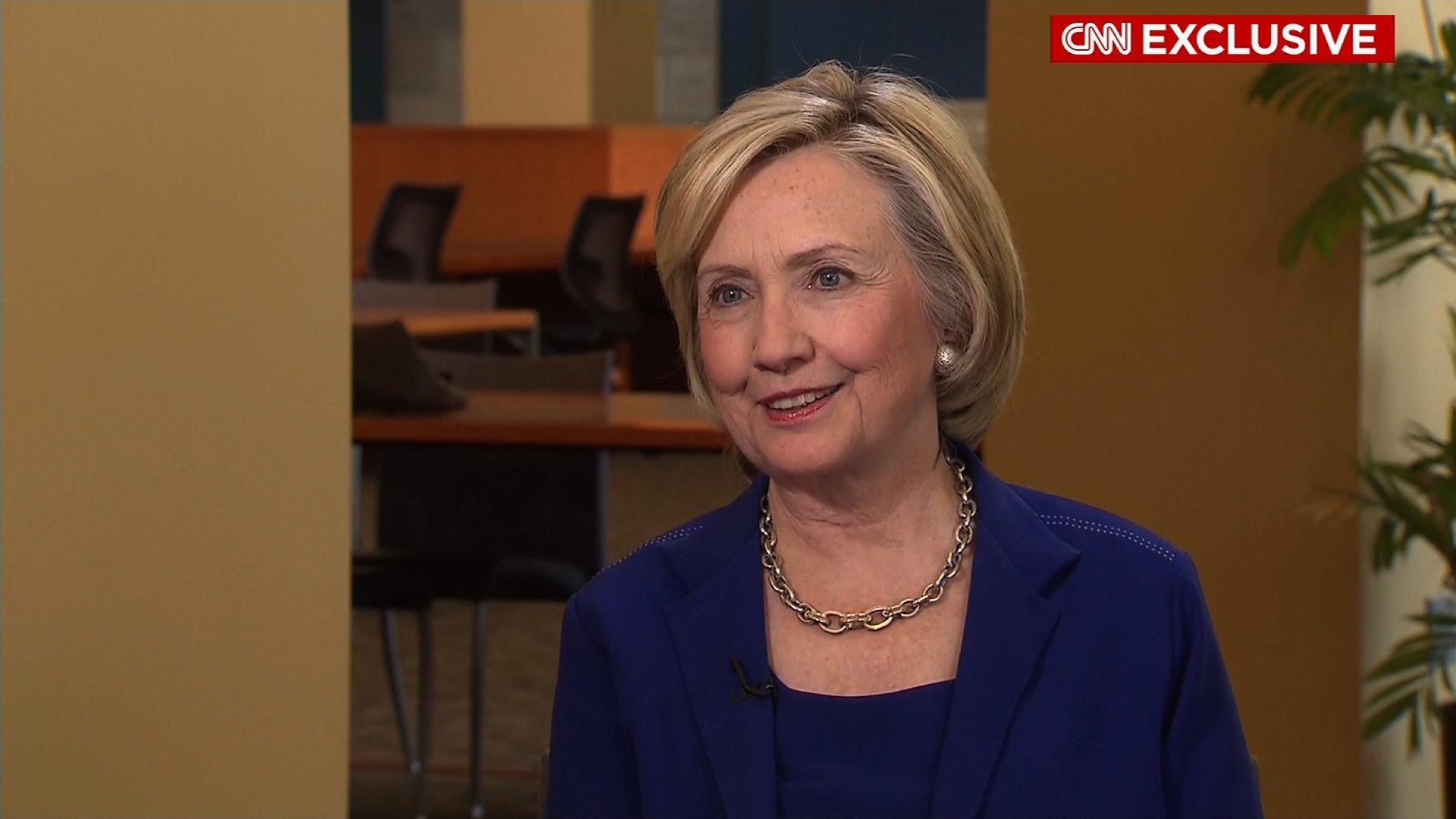In just under three months, voters in Iowa will gather at caucus sites across the state in the first event of the 2016 presidential nominating contest.
And a new CNN/ORC poll finds those voters tilting heavily in Hillary Clinton’s favor on the Democratic side, and divided between Donald Trump and Ben Carson on the Republican end.
The poll of likely Iowa caucus-goers finds Trump with 25% support, Carson 23%. Those two are well ahead of their nearest competitors, Sens. Marco Rubio (13%) and Ted Cruz (11%). Behind this top tier, former Florida Gov. Jeb Bush tops the remainder of the field with 5%, businesswoman Carly Fiorina and Louisiana Gov. Bobby Jindal each hold 4%, New Jersey Gov. Chris Christie has 3%, South Carolina Sen. Lindsey Graham, 2008 Iowa caucus winner Mike Huckabee, Ohio Gov. John Kasich and Kentucky Sen. Rand Paul each have 2%, with the rest at less than 1% support.
All told, the “outsiders” near the top of the field — Trump, Carson and Cruz — hold the support of 59% of likely caucus-goers, up from 44% backing those three in August. But Carson and Rubio have made the biggest individual gains since the last CNN/ORC poll in Iowa in August, rising 9 points and 8 points, respectively.
It is notoriously difficult for surveys to find a representative group of Iowa caucus-goers, since turnout on caucus night typically winds up being much smaller than most polls would suggest. But this poll finds even those most dedicated to attending have similar preferences to the larger group of those who say it’s merely likely they’ll attend. Among those who say they definitely plan to attend the GOP caucus and are more interested in news about the caucus than any other news (a group that makes up roughly 7% of all Iowa adults), the race looks about the same, with Trump holding a narrow edge over Carson, 31% to 24% (within the margin of error for a sample of that size), with Cruz at 14% and Rubio at 10%.
Overall, Trump continues to have a committed base of supporters in Iowa. Among those who say they have definitely decided who they’re going to support, it’s 39% for Trump to 22% for Carson with 14% backing Cruz and 8% behind Rubio. People who say they are “leaning toward” a candidate or “still deciding” break 24% Carson to 19% Trump, with Rubio (15%) and Cruz (9%) trailing.
Carson’s strength in Iowa is boosted by his support among white evangelical Christians. Among that group, 31% say they back Carson, 20% Trump, 15% Cruz, 11% Rubio. Jindal runs in fifth place among this group with 7% support. Among those likely GOP caucus-attendees who are not white evangelical Christians, 28% back Trump, 17% Carson, 15% Rubio and 7% each for Cruz and Bush.
On the issues, Trump maintains huge leads as the candidate who would better handle the economy and illegal immigration, increasing his advantages on both issues compared with CNN’s survey in August. The real estate mogul is less dominant but still ahead of the rest of the field on foreign policy, and runs about evenly with Carson on who would best handle government programs such as Medicare and Social Security. Carson holds the lead on handling social issues.
The outsider-vs-insider divide emerges again when Iowans are asked which candidate best represents the values of Republicans like themselves. Carson, Trump and Cruz are the choice of 57% of Iowa’s potential Republican electorate on that question. Among conservatives, that ticks up to 63%, and hits 67% among those who back the Tea Party movement.
All told, Trump is seen as the party’s best chance to win the White House by about a third of Iowa Republicans: 33% think Trump has the best shot at winning the presidency, 25% say Carson does, 17% Rubio. Just 8% name Cruz and 6% Bush. Further, 27% say Trump is most likely to be an effective president, topping Carson at 20%, Rubio at 13% and Cruz at 12%.
On the Democratic side, Clinton holds an 18-point lead over Bernie Sanders, 55% to 37%, with Martin O’Malley third in the now three-person field with 3%. Both Clinton and Sanders have gained support since the last CNN/ORC Poll in August, when Vice President Joe Biden drew 12% of the vote and Clinton led Sanders 50% to 31%.
Clinton’s lead rests on a wide gender gap and steep lead among older Iowans. While Clinton leads Sanders by a 2-to-1 margin among women (62% to 31%), she holds just a 4-point edge among men (48% to 44%). And among Democrats who say they are likely to attend the caucus and are under age 50, Sanders leads 52% to 42% for Clinton, while Clinton tops Sanders 67% to 23% among those age 50 or older.
That latter divide may explain Clinton’s stronger edge among the subset of likely caucus-goers who say they will definitely attend and are more interested in news about the caucus than any other news, a group that is significantly older and makes up about 4% of Iowa adults. Among those most-likely caucus-goers, Clinton leads Sanders 62% to 32%.
Democratic caucus-goers generally are more apt than Republicans to say they have made up their minds about whom to support, 40% say they’re settled on their choice compared with 27% among Republican likely caucus attendees.
Clinton dominates Sanders on who would best handle the economy, health care, gun policy and foreign policy, but Sanders is more competitive (though still behind) on climate change. Iowa caucus-goers also narrowly tilt Clinton over Sanders on who better understands the problems facing people like you (47% to 43%). Three-quarters of Democratic likely caucus-goers say Clinton has the best chance to win next November, 76% to 20% for Sanders and 2% O’Malley.
Those advantages appear to be fueling a sense of inevitability around Clinton. Among likely Democratic caucus-goers, 82% expect Clinton to be the winner, 16% Sanders and 1% O’Malley. On the Republican side, likely GOP caucusgoers think Trump and Carson have a better shot at the nomination than their competitors who have held elective office before, 33% say they think Trump will carry the GOP banner in 2016, 27% Carson, 15% Rubio, 8% Bush and 7% Cruz.
The CNN/ORC Poll of was conducted by telephone October 29-November 4 among 2,009 adult residents of Iowa, including interviews with 548 likely Republican presidential caucus-goers and 498 likely Democratic presidential caucus-goers. Results for likely Democratic caucus-goers have a margin of sampling error of plus or minus 4.5 points, it is 4 points for likely Republican caucus-goers.




